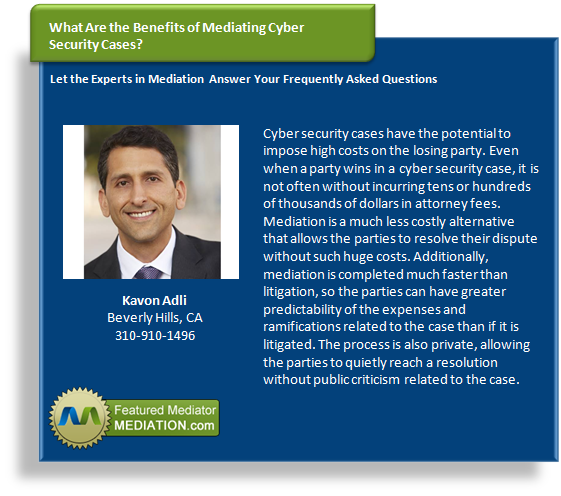No spouse enters into the decision to get a divorce lightly, but some may be surprised to learn of just how impactful divorce can be. If you are contemplating divorce, here are seven things to consider.
1. Is there any way to save your marriage?
 You may think that you have communicated your concerns with your spouse, but does he or she really know how dire the situation has become? Have you tried individual and couples counseling? Have you talked about negotiating things in your household that would remove the strain on your relationship, such as renegotiating your roles or household duties? Divorce has a major impact on your finances, living arrangements, children and future. Before you take the next step in the divorce process, really consider if this is what you want and whether there is any way to avoid it.
You may think that you have communicated your concerns with your spouse, but does he or she really know how dire the situation has become? Have you tried individual and couples counseling? Have you talked about negotiating things in your household that would remove the strain on your relationship, such as renegotiating your roles or household duties? Divorce has a major impact on your finances, living arrangements, children and future. Before you take the next step in the divorce process, really consider if this is what you want and whether there is any way to avoid it.
2. How will the divorce impact your children?
It is well documented that divorce can have a big impact on your children. Their emotional development may be affected, along with their relationship with their parents. For these reasons, many parents stay in a marriage for longer than it is healthy. However, there are things that you can do to make the divorce process more amicable and to minimize its impact on your children, such as refusing to badmouth the other parent in front of your children, providing continued access to the children during the divorce process and trying to focus on their best interests.
3. Are you prepared for the financial stresses that a divorce may bring?
 Divorce has a huge impact on your finances. Your income must now go to support two households. Your retirement plan may be subject to division, making it particularly difficult to recoup for older married people. Start thinking about the potential financial impact of divorce and ways that you can minimize it.
Divorce has a huge impact on your finances. Your income must now go to support two households. Your retirement plan may be subject to division, making it particularly difficult to recoup for older married people. Start thinking about the potential financial impact of divorce and ways that you can minimize it.
4. Can you put aside your anger for your own best interests?
Your spouse has probably done many things to upset you and you are likely justified in feeling angry or resentful towards him. However, responding in an angry fashion during your divorce by making unreasonable demands, fighting over every conceivable issue and not complying with the court’s orders will only hurt you more in the long run. Can you seek help from a therapist or support group so that you can keep things in perspective? Proceeding in an amicable fashion can reduce the time and expense involved in the divorce process, making it easier for you to move on.
5. Can you be patient?
 The divorce process can be long and tedious. However, there may be some ways to speed up the process by being organized, promptly providing the information your lawyer requests and reaching an agreement with your spouse out of court. Nonetheless, this process will require you to be patient for the final decree to be entered.
The divorce process can be long and tedious. However, there may be some ways to speed up the process by being organized, promptly providing the information your lawyer requests and reaching an agreement with your spouse out of court. Nonetheless, this process will require you to be patient for the final decree to be entered.
6. Are you ready for divorce?
Along with preparing emotionally for divorce, you will also need to start gathering important documents to help your lawyer prepare the necessary legal documents. Start gathering documents related to your assets, deeds, titles, mortgage documents, credit card statements, pay stubs, tax returns and documents related to your children. This will go a long way once you start the divorce process.
7. Do you have a trusted divorce lawyer on your side?
 It is important that you have a strong legal advocate on your side that will look out for your best interests during this pivotal time. Contact Robin E. Welch for help with your divorce.
It is important that you have a strong legal advocate on your side that will look out for your best interests during this pivotal time. Contact Robin E. Welch for help with your divorce.
For more information:
If you want to know more about divorce or other family law issues, contact Attorney Robin Welch at 831-540-5163 to discuss your case.
Robin Welch
http://205.134.255.159/~robinwelch/









 You may think that you have communicated your concerns with your spouse, but does he or she really know how dire the situation has become? Have you tried individual and couples counseling? Have you talked about negotiating things in your household that would remove the strain on your relationship, such as renegotiating your roles or household duties? Divorce has a major impact on your finances, living arrangements, children and future. Before you take the next step in the divorce process, really consider if this is what you want and whether there is any way to avoid it.
You may think that you have communicated your concerns with your spouse, but does he or she really know how dire the situation has become? Have you tried individual and couples counseling? Have you talked about negotiating things in your household that would remove the strain on your relationship, such as renegotiating your roles or household duties? Divorce has a major impact on your finances, living arrangements, children and future. Before you take the next step in the divorce process, really consider if this is what you want and whether there is any way to avoid it. Divorce has a huge impact on your finances. Your income must now go to support two households. Your retirement plan may be subject to division, making it particularly difficult to recoup for older married people. Start thinking about the potential financial impact of divorce and ways that you can minimize it.
Divorce has a huge impact on your finances. Your income must now go to support two households. Your retirement plan may be subject to division, making it particularly difficult to recoup for older married people. Start thinking about the potential financial impact of divorce and ways that you can minimize it.  The divorce process can be long and tedious. However, there may be some ways to speed up the process by being organized, promptly providing the information your lawyer requests and reaching an agreement with your spouse out of court. Nonetheless, this process will require you to be patient for the final decree to be entered.
The divorce process can be long and tedious. However, there may be some ways to speed up the process by being organized, promptly providing the information your lawyer requests and reaching an agreement with your spouse out of court. Nonetheless, this process will require you to be patient for the final decree to be entered. It is important that you have a strong legal advocate on your side that will look out for your best interests during this pivotal time. Contact Robin E. Welch for help with your divorce.
It is important that you have a strong legal advocate on your side that will look out for your best interests during this pivotal time. Contact Robin E. Welch for help with your divorce.


